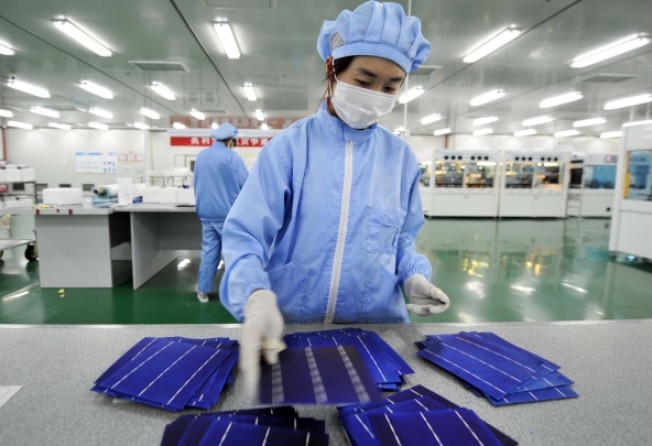Negotiation is the best solution to solar panel dispute

If China slaps anti-dumping duties on European wines, that should do no harm to Hong Kong's growing role as a free-trade hub for fine wine sales. But the threat of a tit-for-tat trade war that looms behind a Sino-EU trade dispute is too serious to savour such a prospect. A Chinese investigation of European exports follows complaints by domestic wine producers that soaring Chinese consumption of old-world wines is being fuelled by illegal producer subsidies that make them cheaper. Coming within a day of the announcement of punitive European tariffs on Chinese solar panels said to be illegally subsidised, the investigation is seen as retaliation.
French wines account for about US$710 million of the estimated US$1 billion worth of European wine sold in China last year. France is a tactical target for other reasons. It is the major hold-out against a growing European revolt against the solar-panel tariffs led by Germany. And it is ultra-protective of its cultural heritage, as evidenced by a threat to block US-EU free-trade talks unless French film, television and music is protected from being overrun by English-language products. China has therefore played its cards astutely, particularly since Spain and Italy, the next biggest wine exporters, have also supported a hard line on solar panels.
That said, there is reason to expect that Beijing will not have to make good its veiled threat. Germany, the predominant European power, has an increasingly important trading relationship with China. It has too much to lose from a tit-for-tat trade war. During Premier Li Keqiang's recent overseas tour, German chancellor Dr Angela Merkel pledged to negotiate an acceptable settlement to the solar-panel dispute. Brussels this week opened a window for negotiations by keeping the anti-dumping tariff on solar panels at a low 11.8 per cent for two months before it rises to 47.6 per cent.
Beijing has welcomed the opportunity to negotiate. Each side must strive to meet the other's concerns. The solar-panel industry became overheated in the quest for competitive advantage, leading to massive expansion at the same time as European demand was undermined by cuts in subsidies for solar-panel installation. As a result, excessive supply and falling prices have led to losses and bankruptcies in Europe and China. A trade war would shake out the industry, but it would raise prices and hurt demand for a green product. Merkel's approach may be driven by national interest, but for the sake of the environment and global trade relations, we trust it prevails.